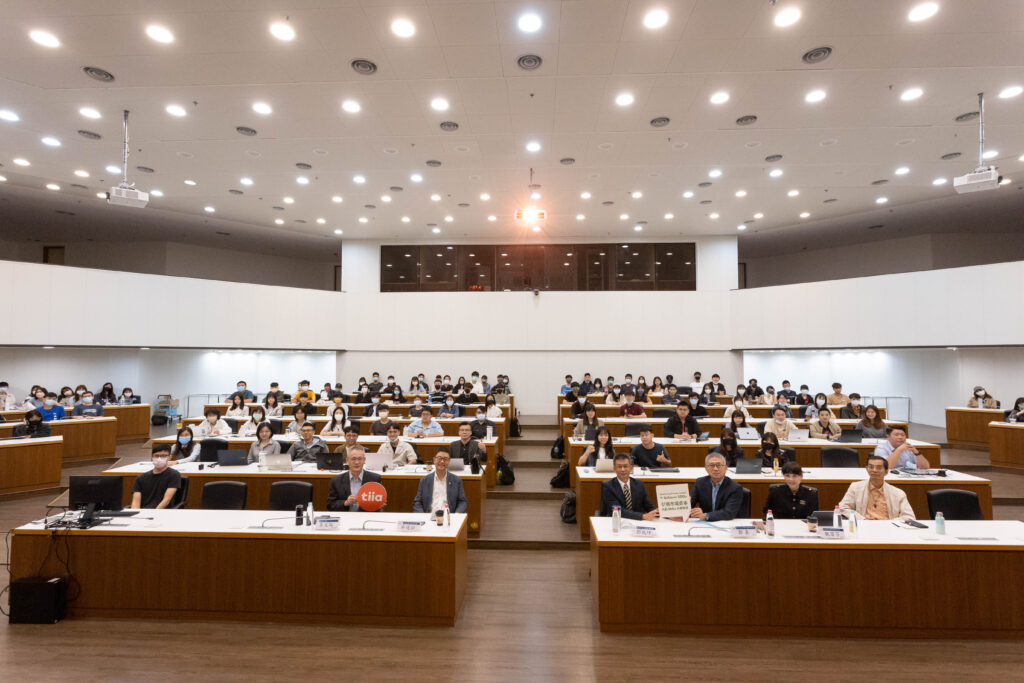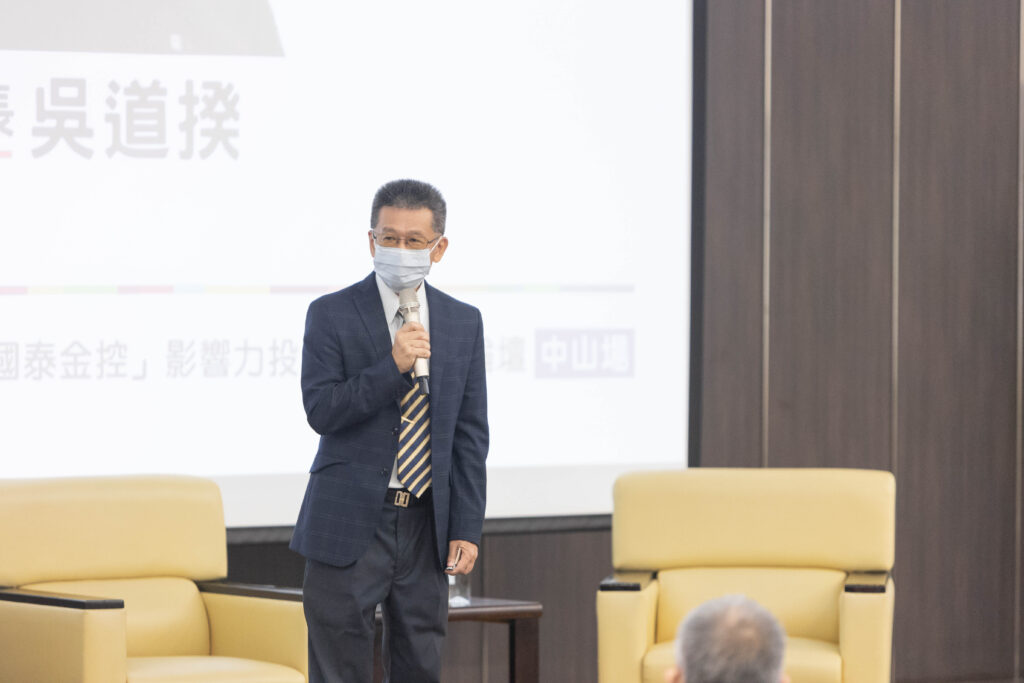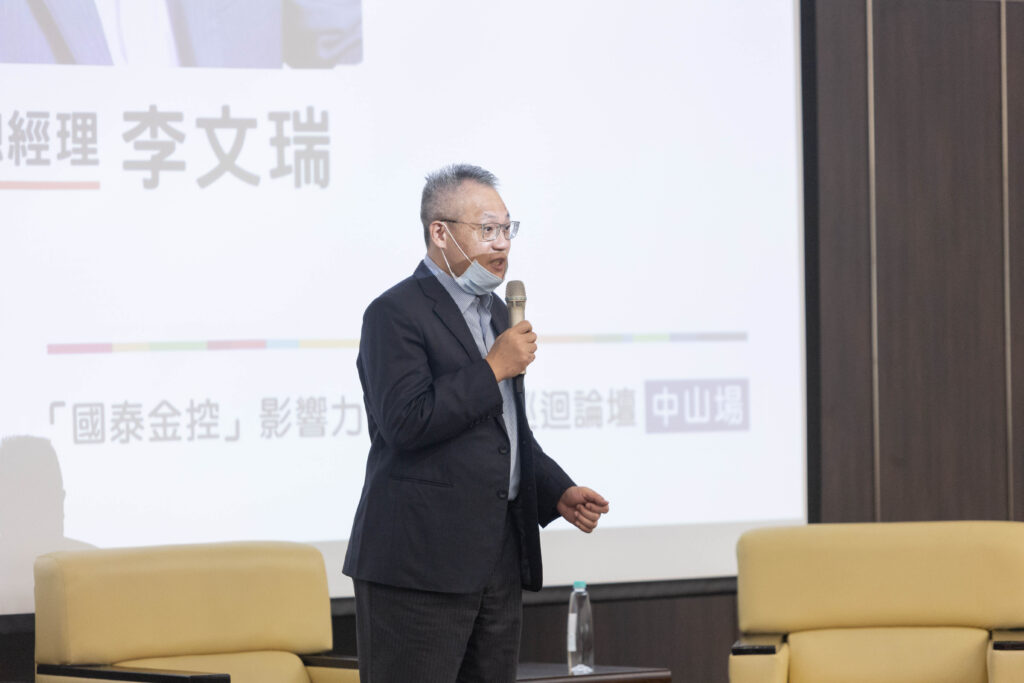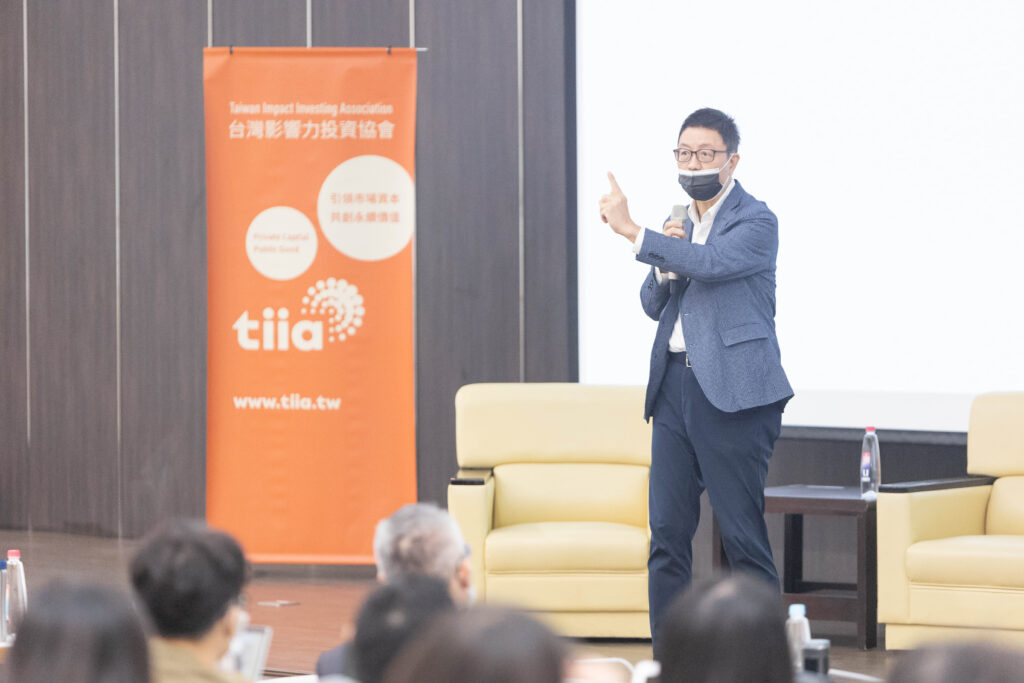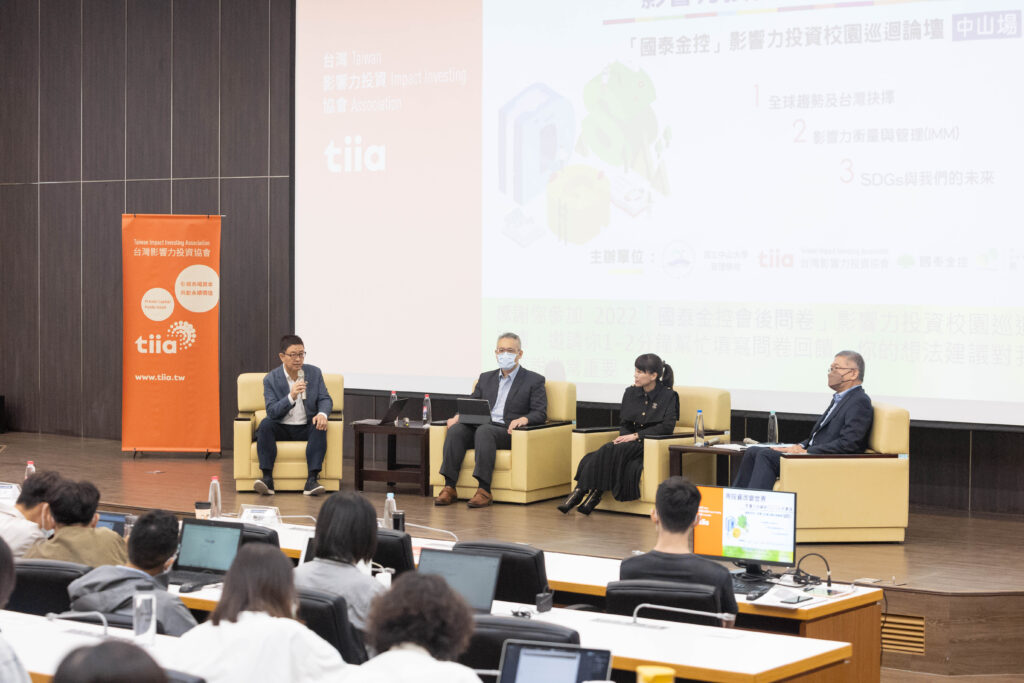The College of Management of National Sun Yat-sen University, the Taiwan Impact Investing Association (tiia), and Cathay Financial Holdings, Inc. co-hosted the “Impact Investing Campus Forum (National Sun Yat-sen University Session)” on November 22nd to discuss what impact investing means and how ESGs and SDGs are practiced. The forum was titled “Changing the World through Investment: The Practice of Impact Investing and SDGs.” Special guests who were invited to share included Tao-kuei Wu, CEO of Taiwan Impact Investing Association; Wen-Jui Li, Vice President of Cathay Life; Pi-fen Wei, Chairman of Sinya Digital Co.; and Jui-Kun Kuo, Associate Dean of the College of Management, NSYSU. From the concept to the practice of impact investing, they further discussed the innovation in impact investing and the practice of SDGs. Shu-chuan Jennifer Yeh, Dean of the College of Management, NSYSU, and Hsin-pei Lin, Director of the Office of Responsibility and Sustainability Actions, NSYSU, were very supportive of this event and passionate about the practice of SDGs. The organizers hope that students will be more aware of sustainability issues, starting from small places in their lives, and take action to influence others to create a virtuous cycle of sustainability.
Associate Dean Jui-Kun Kuo of the College of Management, NSYSU pointed out that impact investment is linked to local creativity, which means solving social problems or facing social risks. Cathay Life’s Vice President Wen-Jui Li added that financial institutions use various financial resources, such as investments, products and services, to fulfill their corporate social responsibility and act as a bridge between investors and investees, spreading sustainable values and generating positive benefits for society. Defining “impact investment,” CEO Wu said, “In addition to financial returns, impact investment should also pursue a clear and measurable social or environmental impact.” What is pursued here is “double bottom lines,” which means a dynamic balance between profit and value. Therefore, companies will not sacrifice profits in order to achieve a sustainable vision. Impact investing, which focuses on SDGs and provides solutions to social and environmental issues, is part of sustainable investing. Impact investing occurs when there is an intention to create a positive, measurable impact on society and the environment, while also generating profits.
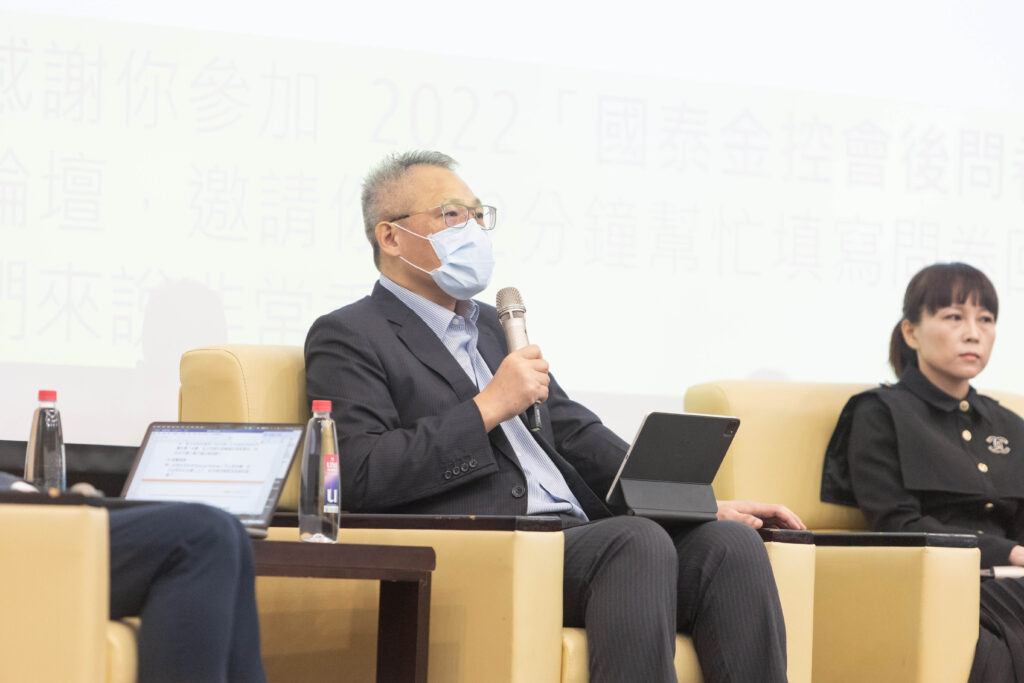
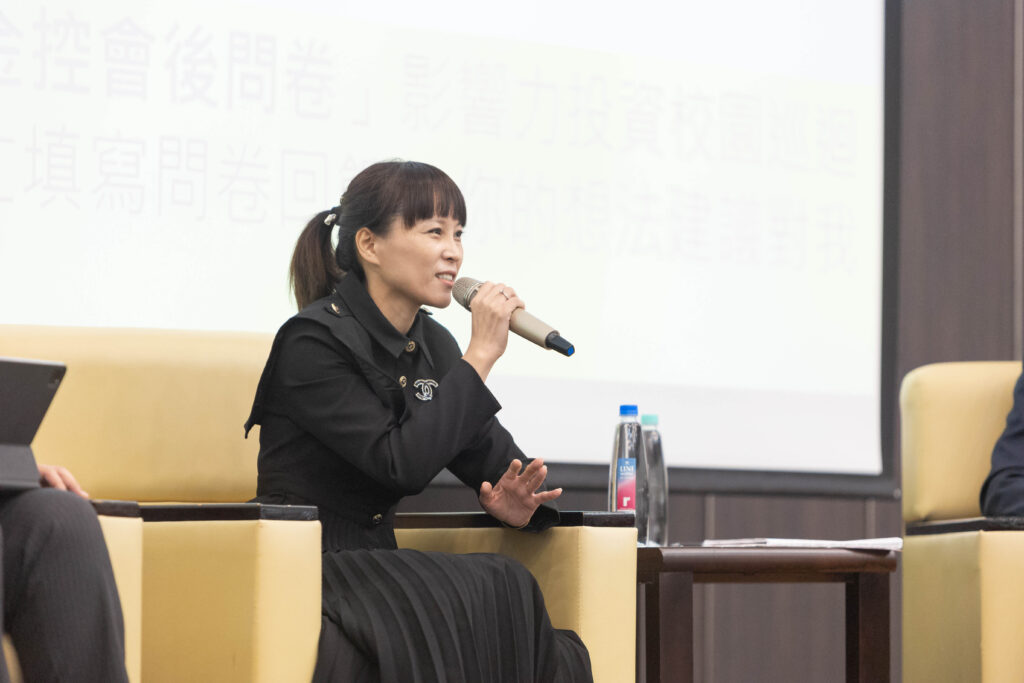
In terms of practical sharing, Chairman Wei of Sinya Digital Corporation shared how the company has built computer classrooms in youth halfway houses throughout Taiwan. With the spirit and philosophy of giving back to the society, they aim to give the youth the right to explore and learn more. At the same time, it also echoes SDG 1 No Poverty and SDG 4 Quality Education, not only helping the disadvantaged, but also empowering them, in the hope that they can go from takers to givers. Cathay Life’s Vice President Li shared how Cathay continues to invest in ESG, with “climate,” “health,” and “empowerment” as the three main axes of development, promoting “youth cultivation” and “responsible investment” through long-term strategies, while continuing to cultivate the younger generation, paying attention to sustainability issues, and cultivating sustainable talents for Taiwan. The sooner an enterprise can make plans in these areas, the better it will be able to take advantage of these opportunities and have greater influence in the market in the future.
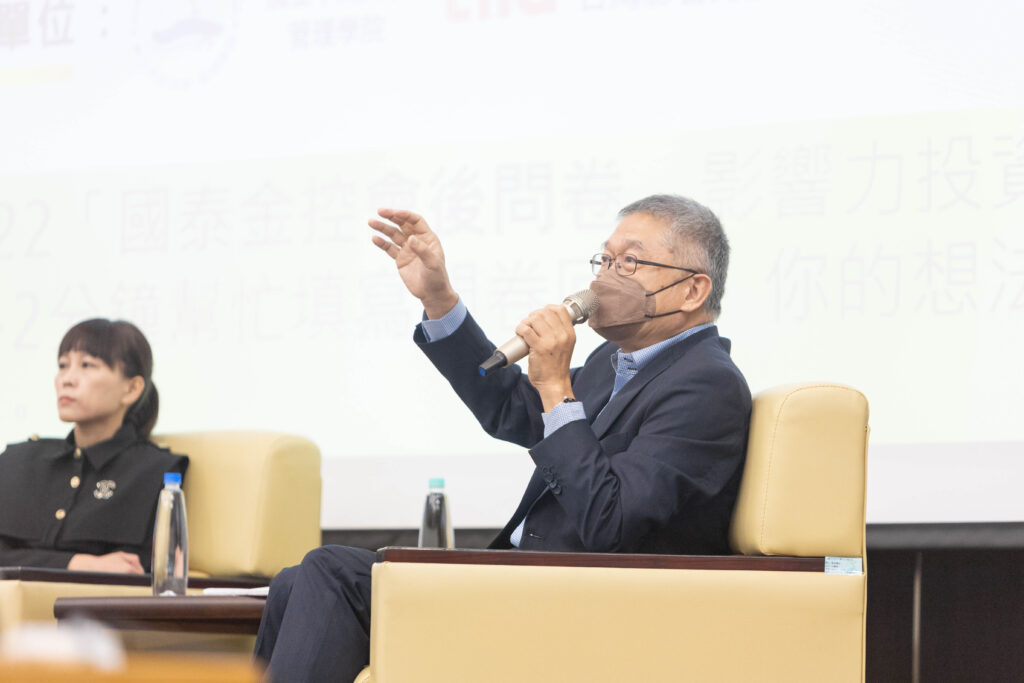
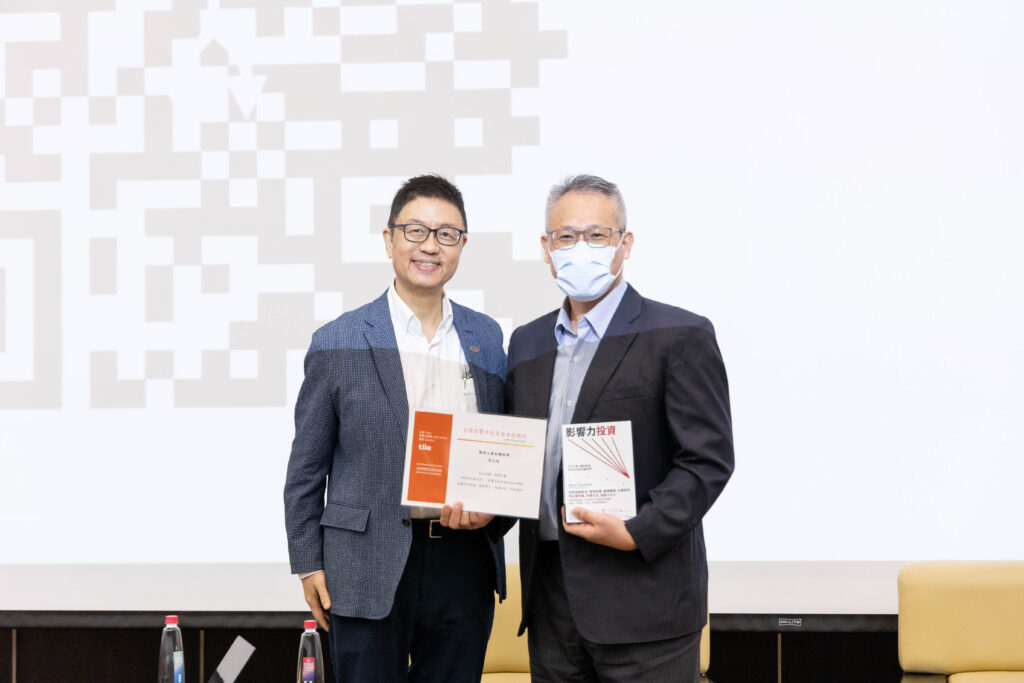
Lastly, Associate Professor Yih Jeng from the Department of Finance shared his thoughts on how to build up the concept of impact investment at the university level, proposing “3Es: Explore, Empowerment, Engagement.” He hoped that students find out what they like in college through diverse explorations, then make an effort to cultivate their professions, and finally find their own position and direction. Starting from their professions, they can collaborate across fields and respond to social issues to make the world a better place. In addition, Professor Jeng quoted a line from an ancient poem (勸學詩) to encourage students to learn more and more: “There is a house of gold in a book” (書中自有黃金屋). After taking stock of their existing resources, they should make good use of seminars and competitions both on and off campus to refine their professional abilities and integrate sustainable knowledge. The combination of the two can make them irreplaceable sustainable talents in the future. Professor Jeng also encouraged students to remember that they are braver than they think, to experiment, to not set limits on themselves, to develop a global perspective, and to make an impact through continuous learning and innovative thinking from a local perspective, working together to solve social and environmental issues.
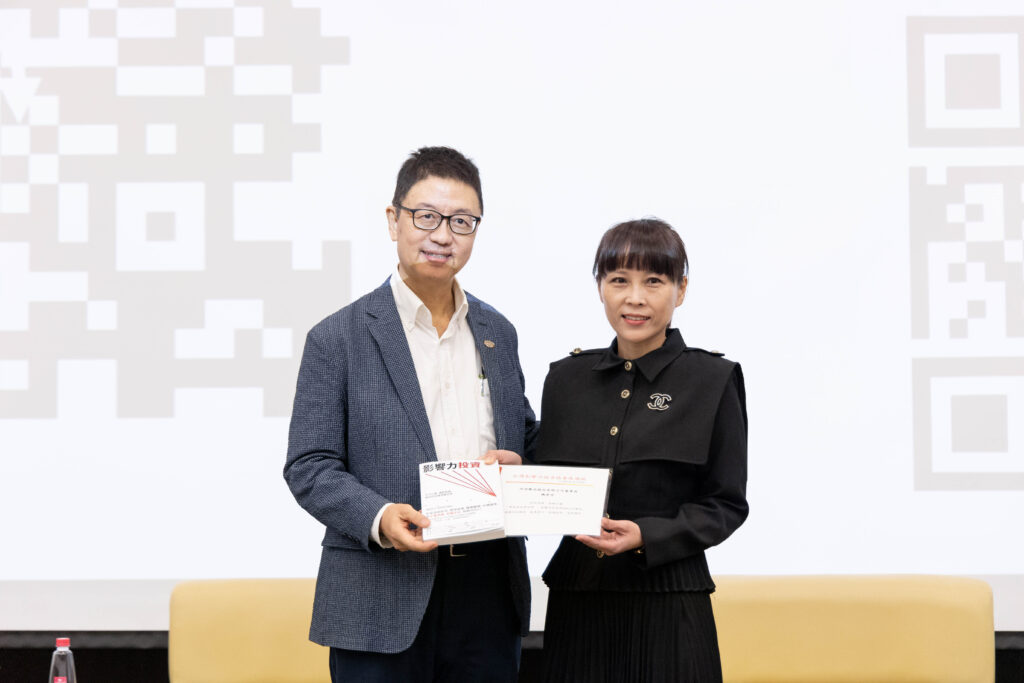
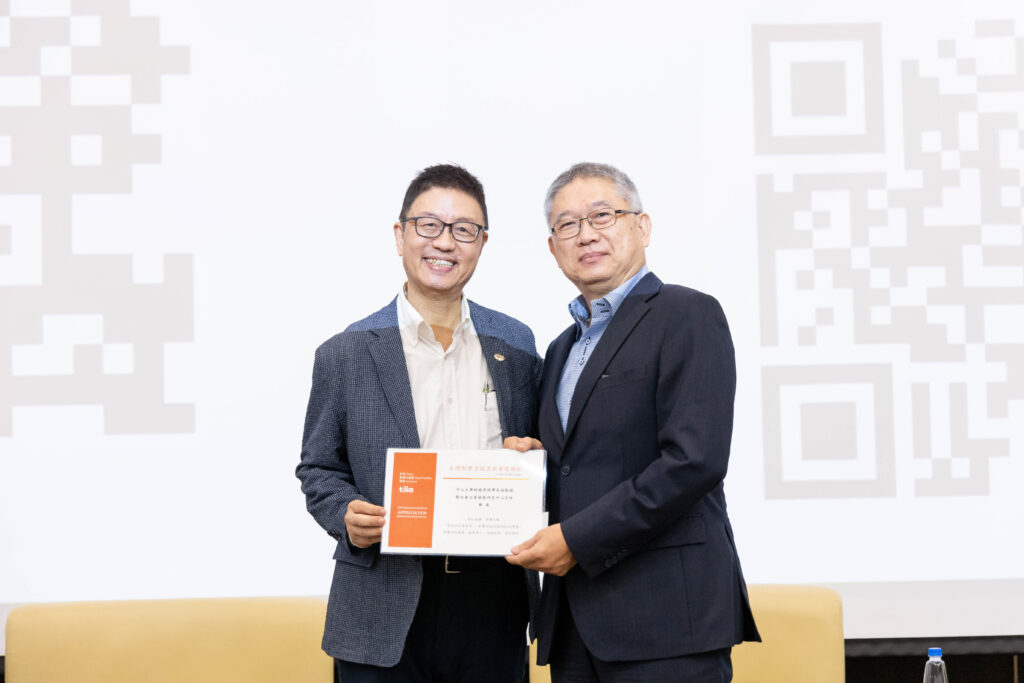
(Written by Chia-hui Yen, Institute of Social Innovation / Edited by College of Management)
